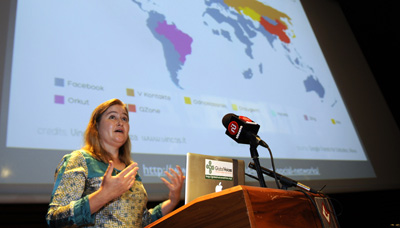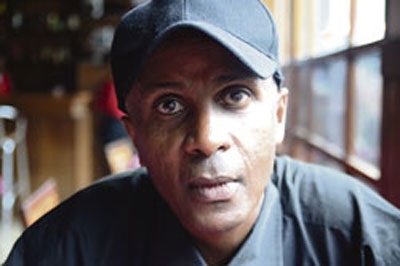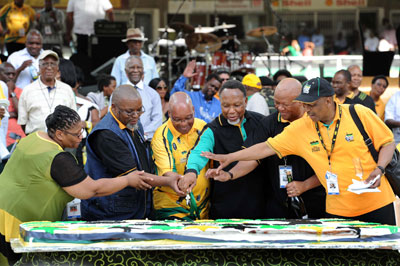
Does the Internet boost freedom? We decide, book says
The Internet doesn’t bring freedom. Not automatically, anyway. That’s one of the main messages of Rebecca MacKinnon’s new book, Consent of the Networked, which had its New York launch at the offices of the New America Foundation last night. In a conversation with CNN managing editor Mark Whitaker, MacKinnon, a CPJ board member, said it’s…
Ahead of Iran elections, crackdown on press continues
New York, February 2, 2012–At least 10 Iranian journalists were jailed in the month of January as the government continued its crackdown on dissent ahead of parliamentary elections scheduled in March, the Committee to Protect Journalists said today. Recent news reports identified three previously undisclosed arrests.
For journalists, cyber-security training slow to take hold
For centuries, journalists have been willing to go to prison to protect their sources. Back in 1848, New York Herald correspondent John Nugent spent a month in jail for refusing to tell a U.S. Senate committee his source for a leak exposing the secret approval of a treaty with Mexico. In a digital age, however,…
Google+, real names and real problems
At the launch of Google+, Google’s attempt to create an integrated social network similar to Facebook, I wrote about the potential benefits and risks of the new service to journalists who use social media in dangerous circumstances. Despite early promises of relatively flexible terms of service at Google+, the early days of implementation were full…
Online publishers, developers sentenced to death in Iran
Politically-related Iranian prosecutions often take place in near secrecy, with unclear charges morphing and changing over time. It doesn’t get any easier to work out the motivations of prosecutors when the charges are connected to technology.

Vietnam releases journalist, nine others still jailed
Bangkok, January 17, 2012–The Committee to Protect Journalists welcomes the release from prison of French-Vietnamese blogger Pham Minh Hoang and calls on Vietnam’s Communist Party-led government to remove the continuing restrictions on him and free the nine other journalists still behind bars.

Standing with Ethiopia’s tenacious blogger, Eskinder Nega
It would be hard to find a better symbol of media repression in Africa than Eskinder Nega. The veteran Ethiopian journalist and dissident blogger has been detained at least seven times by Prime Minister Meles Zenawi’s government over the past two decades, and was put back in jail on September 14, 2011, after he published…

#ANC100 debate lays bare divisions over South Africa media
On January 8, 1912, South African intellectuals–including pioneering black newspaper publishers Pixley ka Isaka Seme, editor of Abantu-Batho, and John Langalibalele Dube, editor of Ilanga lase Natal–formed Africa’s oldest liberation movement, the African National Congress (ANC), in the Wesleyan Church in Bloemfontein.
